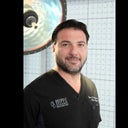Posted underBreast Implants q&a
Answers (6)
From board-certified doctors and trusted medical professionals
Dr. Jaime S. Schwartz, MD, FACS

JF
Dr. Jaime S. Schwartz, MD, FACS
Board Certified Plastic Surgeon
Answer
Dr. Kamran Azad, MD

KM
Dr. Kamran Azad, MD
Board Certified Plastic Surgeon
Answer
Dr. Payman Danielpour, MD, FACS

PF
Dr. Payman Danielpour, MD, FACS
Board Certified Plastic Surgeon
Answer
Dr. Jed H. Horowitz, MD, FACS

JF
Dr. Jed H. Horowitz, MD, FACS
Board Certified Plastic Surgeon
Answer
Dr. Jack Peterson, MD
JM
Dr. Jack Peterson, MD
Board Certified Plastic Surgeon
Answer
More Breast Implants Questions
See all Breast Implants Q&A
WE SEND PRETTY
EMAILS
What’s trending? Who’s turning heads? Which TikTok myths need busting? We’ve got you. No fluff, no gatekeeping—just real talk. Get our free, unfiltered newsletter.





